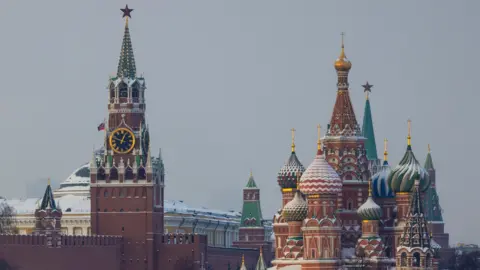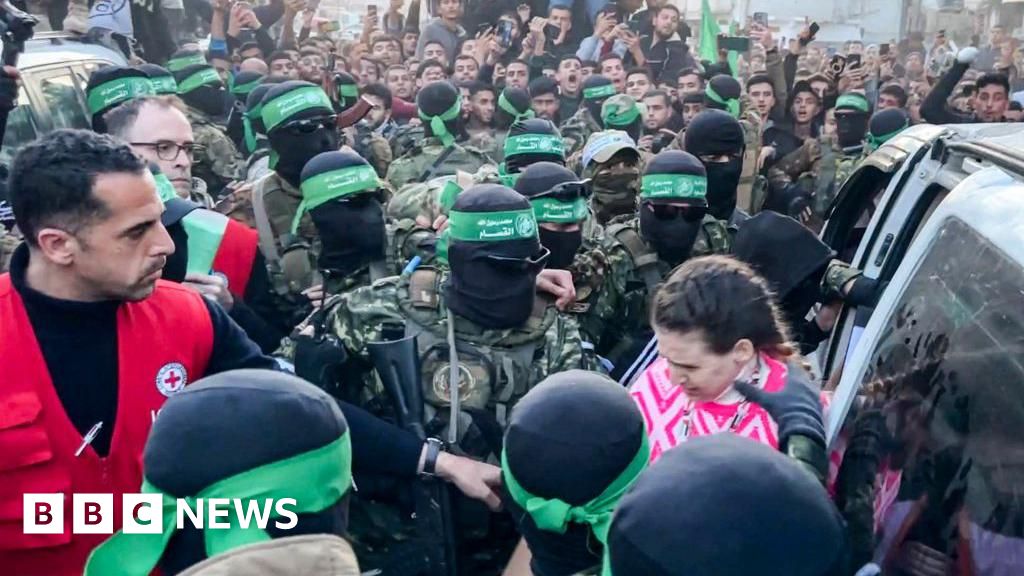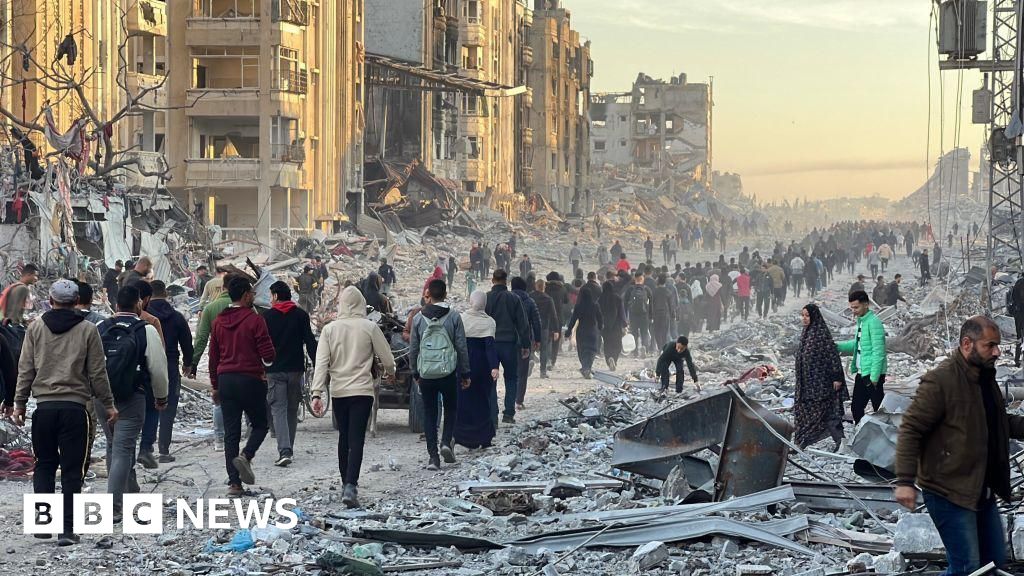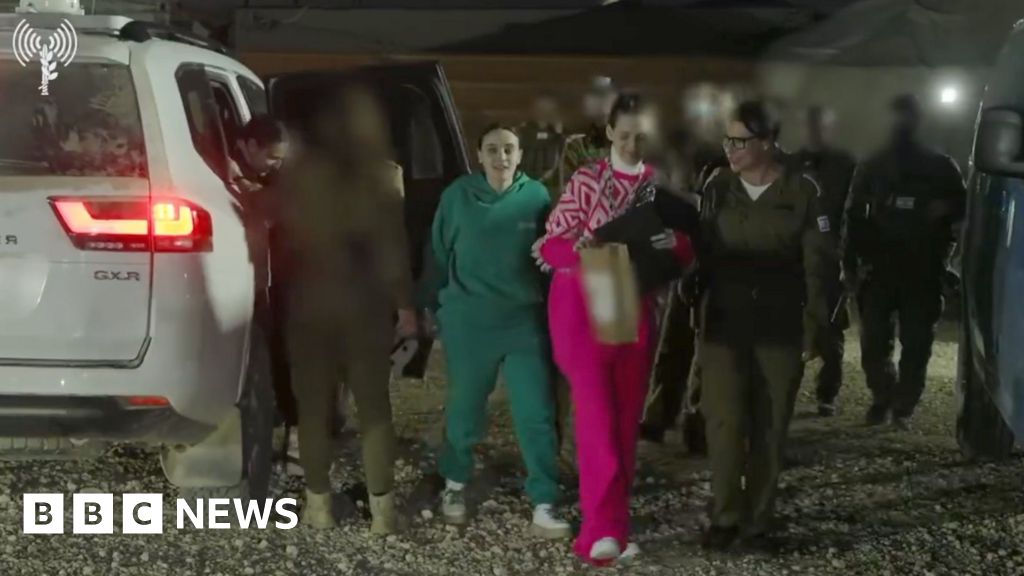ARTICLE AD BOX
Watch: Moscow's Europe Square renamed Eurasia Square
Moscow's Europe Square is no more.
The city’s Mayor, Sergei Sobyanin, has signed an order renaming this place Eurasia Square.
It's a little change that says a lot about the direction in which Russia is moving: away from the West.
It’s not the prettiest square in the Russian capital. It's certainly no match for Red Square, with the breathtaking onion domes of St Basil’s Cathedral and the Kremlin.
Eurasia Square is built beside the bustling "Kyiv Railway Station" and a hotel,where the BBC’s Moscow Office was once located. There’s a fountain and an unusual composition created by a Belgian sculptor entitled "The Abduction of Europe".
I remember when this square was constructed just over 20 years ago. It was built as a symbol of unity on the continent of Europe. There were once dozens of flags of different European countries flying here.
They were removed last year, and now the name’s gone too.
Goodbye Europe; hello Eurasia.
But what exactly is Eurasia?
Different countries have different concepts of Eurasia. President Vladimir Putin officially terms Russia a Eurasian power. He uses the word to mean Russia is geographically in Europe and Asia but civilisationally distinct from both.

 Reuters
Reuters
Eurasia Square is no match for the onion domes on Moscow's Red Square
Europe Square's commemorative plaque still stands. It reads:
“As a token of stronger friendship and unity between the European countries, the government of Moscow has decided to create the ensemble of the Square of Europe in the Russian capital.”
The reality is that Russia’s war in Ukraine and Western sanctions have put enormous strain on relations between Moscow and Europe. The Russian authorities talk constantly now of the need to tilt east and look towards China, North Korea, Asia as a whole.
Europe isn’t just out of fashion - it is portrayed by the Russian authorities as the enemy.
It’s not the first time that the Moscow authorities have played politics with street names after Russia’s full-scale invasion of Ukraine.
In June 2022 the street where the US embassy is located was renamed “Donetsk People’s Republic Square,” a reference to the self-proclaimed breakaway region of Ukraine, which Russia later claimed to have annexed.
In similar fashion, the following month the area around the British embassy became “Luhansk People’s Republic Square.”
'I don't want to be in Europe'
Back on (former) Europe Square, what do passers-by make of the change to Eurasia?
“It’s the right decision,” Olga tells me. “We’re not friends with Europe right now. I don’t want to be in Europe.”
“Eurasia is good,” says Anna. “Russia borders Europe and Asia. I was born in Kazakhstan, so this is fine with me.”
“Europe has different standards now,” Pasha tells me. “They think in a different way. We’re gradually splitting away.”
But Yevgeniya is disappointed. She sees the name change as “a sign of conflict between different countries.
"It’s so sad," she adds.
But at the end of the day, does a name really matter?
Following the 1917 Russian Revolution so many streets and squares in Russia were renamed to feature the word "communism". Did it help the Soviet Union build communism? Not in the slightest.
The decision to ditch the word Europe from a square doesn’t mean that Russia won’t one day, once again, look West.

 5 months ago
23
5 months ago
23








 English (US) ·
English (US) ·